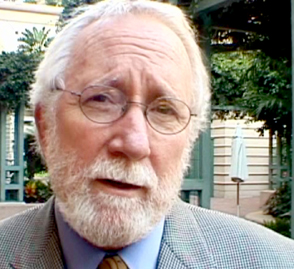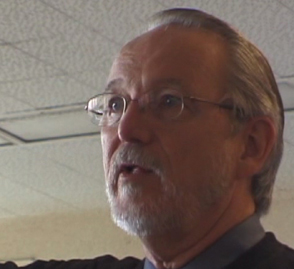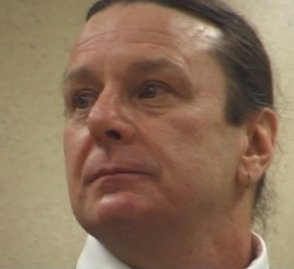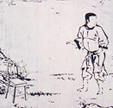Prohibiting Prohibition
As a police officer in 1966, Norm Stamper, by his own account, enjoyed drug busts. He liked kicking down doors for a half a bag of marijuana or even a single seed. At the academy, he had learned the importance of drug arrests; and he worked hard to bump up the statistics.
 “But after about fourteen months on the job, having had a principled prosecutor slap me upside the head and question my understanding of the Constitution, I began to understand that the seventeen or nineteen-year-old kid I had in the back seat of my police car was not a criminal at all.”
“But after about fourteen months on the job, having had a principled prosecutor slap me upside the head and question my understanding of the Constitution, I began to understand that the seventeen or nineteen-year-old kid I had in the back seat of my police car was not a criminal at all.”
Forty years later, Stamper has a valuable and controversial perspective.
“I think the Drug War has been arguably the single most devastating, dysfunctional, harmful social policy since slavery.”
—Retired Seattle Police Chief Norm Stamper
When the Nixon administration declared a War on Drugs three decades ago, Jack Cole was an undercover officer infiltrating groups of young people and college students. On weekends, when the kids were out of classes or off work, one of them might ask the others if they wanted to get high. Cole’s job was to ask that question if no one else did.
 “If somebody simply passed a marijuana cigarette to me, they became a drug dealer. That hand-held marijuana cigarette would send that person to jail for seven years. Over a thousand young people went to jail as a direct result of what I did out there as one undercover agent, something that I’m certainly not proud of today.”
“If somebody simply passed a marijuana cigarette to me, they became a drug dealer. That hand-held marijuana cigarette would send that person to jail for seven years. Over a thousand young people went to jail as a direct result of what I did out there as one undercover agent, something that I’m certainly not proud of today.”
—Retired New Jersey State Police Lieutenant Jack Cole
The United States outlawed alcohol, and alcohol became a big money-maker for organized crime. Prohibition dramatically raised the level of violence on our streets as mobsters fought for control of the market. Our new prohibition, the drug war, has achieved the same result for a new generation of gangsters. Dealers don’t shoot their customers; they shoot other dealers. The innocent victims are the people who happen to get in the way of the bullets.

“Drug legalization is not to be construed as an approach to our drug problem. Drug legalization is about our crime and violence problem.”
—Retired Tonawanda Police Captain Peter Christ
Directly and indirectly, we all pay for the madness. The incarceration rate of black males in South Africa under apartheid in 1993 was 851 per 100,000. In the U.S. under drug prohibition in 2004, the incarceration rate was 4919 per 100,000. In many states, felons cannot vote; so the drug war is disproportionately disenfranchising the black community.
The huge amounts of money involved present the obvious potential for corruption of law enforcement. The huge number of arrests means more prisons, which has fueled a drive for privatization of prisons, which in turn has led to corporate influence in legislative and judicial processes. Private prisons hire lobbyists to push for mandatory minimum sentences to increase the prison population. We spend $69 billion on the Drug War every year, and we are nowhere near victory.
Syracuse city auditor Mitch Lewis studied the effectiveness of his city’s drug enforcement expenditures. He concluded that they weren’t effective.
“If we really want to improve our urban neighborhoods, the most important thing that we could do — the single most important thing that we could do — is end the war on drugs.”
—Syracuse City Auditor Mitch Lewis
Prohibition doesn’t work. It’s time to prohibit prohibition.
Want to learn more? Check out LEAP, Law Enforcement Against Prohibition, at:
http://www.leap.cc/
____________________
 “But after about fourteen months on the job, having had a principled prosecutor slap me upside the head and question my understanding of the Constitution, I began to understand that the seventeen or nineteen-year-old kid I had in the back seat of my police car was not a criminal at all.”
“But after about fourteen months on the job, having had a principled prosecutor slap me upside the head and question my understanding of the Constitution, I began to understand that the seventeen or nineteen-year-old kid I had in the back seat of my police car was not a criminal at all.”Forty years later, Stamper has a valuable and controversial perspective.
“I think the Drug War has been arguably the single most devastating, dysfunctional, harmful social policy since slavery.”
—Retired Seattle Police Chief Norm Stamper
When the Nixon administration declared a War on Drugs three decades ago, Jack Cole was an undercover officer infiltrating groups of young people and college students. On weekends, when the kids were out of classes or off work, one of them might ask the others if they wanted to get high. Cole’s job was to ask that question if no one else did.
 “If somebody simply passed a marijuana cigarette to me, they became a drug dealer. That hand-held marijuana cigarette would send that person to jail for seven years. Over a thousand young people went to jail as a direct result of what I did out there as one undercover agent, something that I’m certainly not proud of today.”
“If somebody simply passed a marijuana cigarette to me, they became a drug dealer. That hand-held marijuana cigarette would send that person to jail for seven years. Over a thousand young people went to jail as a direct result of what I did out there as one undercover agent, something that I’m certainly not proud of today.”—Retired New Jersey State Police Lieutenant Jack Cole
The United States outlawed alcohol, and alcohol became a big money-maker for organized crime. Prohibition dramatically raised the level of violence on our streets as mobsters fought for control of the market. Our new prohibition, the drug war, has achieved the same result for a new generation of gangsters. Dealers don’t shoot their customers; they shoot other dealers. The innocent victims are the people who happen to get in the way of the bullets.

“Drug legalization is not to be construed as an approach to our drug problem. Drug legalization is about our crime and violence problem.”
—Retired Tonawanda Police Captain Peter Christ
Directly and indirectly, we all pay for the madness. The incarceration rate of black males in South Africa under apartheid in 1993 was 851 per 100,000. In the U.S. under drug prohibition in 2004, the incarceration rate was 4919 per 100,000. In many states, felons cannot vote; so the drug war is disproportionately disenfranchising the black community.
The huge amounts of money involved present the obvious potential for corruption of law enforcement. The huge number of arrests means more prisons, which has fueled a drive for privatization of prisons, which in turn has led to corporate influence in legislative and judicial processes. Private prisons hire lobbyists to push for mandatory minimum sentences to increase the prison population. We spend $69 billion on the Drug War every year, and we are nowhere near victory.
Syracuse city auditor Mitch Lewis studied the effectiveness of his city’s drug enforcement expenditures. He concluded that they weren’t effective.
“If we really want to improve our urban neighborhoods, the most important thing that we could do — the single most important thing that we could do — is end the war on drugs.”
—Syracuse City Auditor Mitch Lewis
Prohibition doesn’t work. It’s time to prohibit prohibition.
Want to learn more? Check out LEAP, Law Enforcement Against Prohibition, at:
http://www.leap.cc/
____________________
Labels: Law Enforcement Against Prohibition, Richard Nixon, war on drugs


0 Comments:
Post a Comment
<< Home